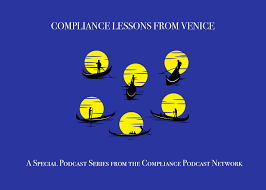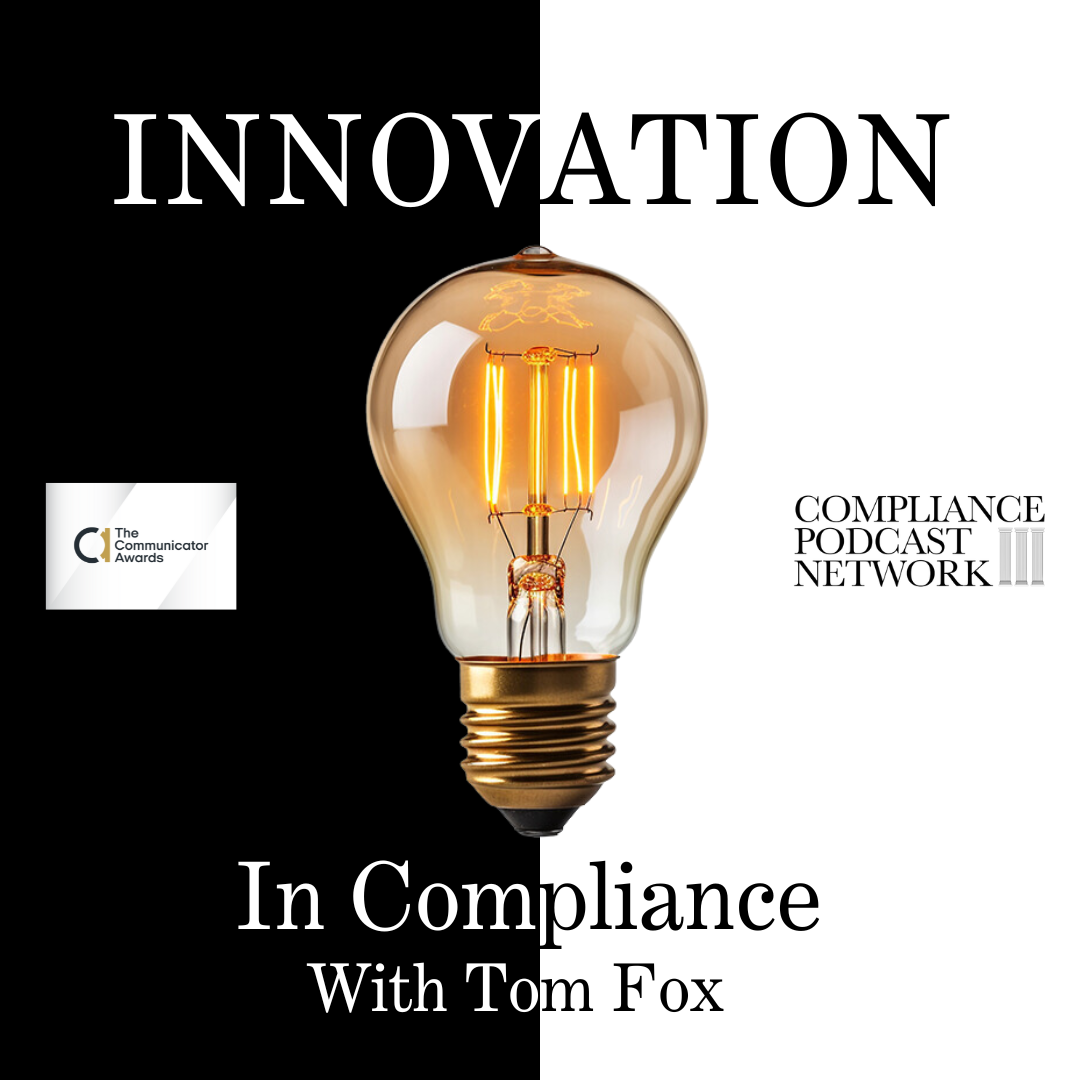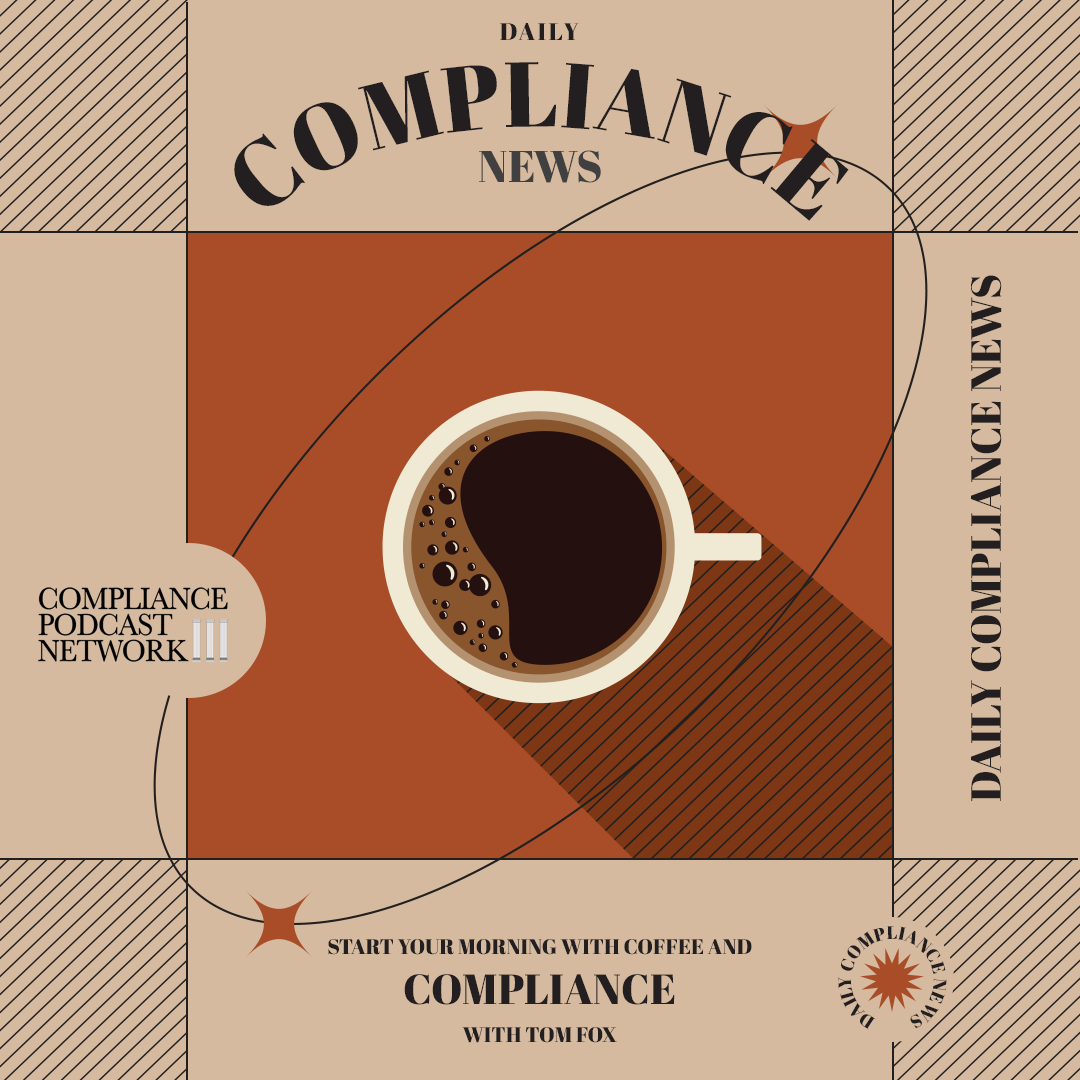In part 2 of the Compliance Lessons from Venice series, we journey to the Arsenale, the historic heart of Venice’s shipbuilding industry. During Venice’s golden age, the Arsenale was a hub of ingenuity, productivity, and loyalty to the state. The Venetian fathers recognized the strategic importance of Arsenale’s workers and implemented a unique mix of incentives and discipline to protect their secrets, maintain a loyal workforce, and create a prototype culture of compliance. This blog post series is the written companion to the podcast series running on the Compliance Podcast Network.
Today, we can draw from Venice’s business expertise to inform our approach to incentivizing compliance. We focus on a blend of rewards and consequences to encourage ethical behavior, adherence to company values, and enhancement of culture. We will examine how Venice’s example aligns with the DOJ’s compliance guidance and offers valuable lessons for modern corporate compliance programs in the areas of incentives and consequences, together with the development of a culture of compliance.
The Arsenale: Venice’s Production Powerhouse
At its peak, the Venetian Arsenale employed around 12,000 workers, nearly 10% of the city’s population. Venice, one of the most powerful economic and military forces of its time, relied on the Arsenale to build, repair, and maintain its fleet. Here, Venice perfected the assembly line method, with workers laboring by hand to create state-of-the-art ships efficiently and at scale. This commitment to quality and security extended beyond production techniques; the shipbuilding secrets developed in the Arsenale were considered so valuable that they were treated as state secrets, with measures in place to protect the knowledge and the workforce’s loyalty.
The Venetian fathers understood that safeguarding this valuable knowledge required both a carrot and a stick approach. They developed a system that incentivized workers to stay loyal while imposing severe penalties for disloyalty or breaches of confidentiality.
Venice’s Approach to Incentives and Disincentives
Venice’s system was designed to support long-term loyalty, stability, and excellence among Arsenale workers, serving as a model for effective workforce management and protection of critical information. Key elements included:
- Job Security and Benefits. Workers at the Arsenale enjoyed job security and were compensated if they lost their ability to work due to injury or illness. Upon a worker’s death, the Arsenale provided funeral expenses and continued to support the family through stipends or alternative job placements for family members. This created a robust and personal investment in the success of the Arsenale, Venice’s population, and the entire city.
- Strict Confidentiality and Non-Compete Policies. Venice enacted strict measures to protect its intellectual property. Skilled workers were forbidden from leaving Venice to work for rival cities, effectively instituting one of the earliest forms of a non-compete clause. The penalties for violating this policy were harsh, including torture and execution. Although we have come a long way from such extreme punitive measures, the principle remains relevant in compliance today: a company’s success is closely tied to maintaining the confidentiality of its processes, intellectual property, and proprietary information.
The DOJ’s Guidance on Incentives and Discipline
The DOJ emphasized the importance of both incentives and disincentives to drive ethical behavior in the 2024 Evaluation of Corporate Compliance Programs (2024 ECCP). Venice’s approach aligns closely with this approach, and compliance professionals can look to Arsenale for lessons in incentivizing compliance.
Incentives for Ethical Conduct
The DOJ has recognized that positive incentives can drive compliant behavior. Incentives can be financial—bonuses, salary increases, or promotions—or non-financial, such as recognition and personal acknowledgment. This was reinforced in the 2024 ECCP, which stated, “Has the company considered the impact of its financial rewards and other incentives on compliance?” Some companies have implemented programs incorporating ethics and compliance metrics into performance evaluations. Other companies have awarded annual cash bonuses for outstanding ethical behavior, demonstrating the company’s commitment to integrity.
Making compliance part of the company’s core DNA starts with integrating ethical behavior into everyday performance metrics. This means including compliance adherence in bonus structures or linking promotions to ethical performance rather than pure profitability. By embedding compliance into performance reviews, companies send a clear message: ethical behavior is not just expected but rewarded.
Publicizing Disciplinary Actions
Conversely, the DOJ’s guidance recommends that companies communicate the consequences of unethical actions and compliance violations. When employees understand that unethical behavior has swift and predictable repercussions, it reinforces a culture of accountability. Many companies choose to publicize examples of disciplinary actions to underscore the consequences of misconduct. This transparency demonstrates that the organization takes compliance seriously and applies consequences uniformly. Indeed, the 2024 ECCP states, “Prosecutors may consider whether a company has publicized disciplinary actions internally, where appropriate and possible, which can have valuable deterrent effects.”
In Venice, the knowledge of harsh punishments deterred Arsenale workers from betraying the city’s secrets. Today, compliance departments do not need such severe measures, but transparent communication around discipline can serve a similar function, reminding employees of the importance of maintaining integrity.
Building a Compliance Culture Based on Loyalty and Trust
In Venice, loyalty to the Arsenale wasn’t driven by fear alone; workers knew the city valued and protected them. The DOJ emphasizes a similar approach for corporate compliance programs, suggesting that incentives go beyond mere policy compliance. Instead, they should aim to cultivate a culture where ethical conduct is intrinsically linked to loyalty to the company and professional satisfaction.
Consider implementing the following methods to build loyalty and trust in your compliance program:
- Job Security and Career Support. Like the Venetian fathers who assured workers of job security and family support, compliance programs can provide employees with stability and purpose. Offering career advancement opportunities, professional development in compliance-related areas, and clear paths to promotion for ethical conduct reinforces a culture where compliance is valued and integral to career success.
- Recognition Programs. Recognizing employees who demonstrate ethical behavior is powerful. Recognizing compliance champions through formal awards or public acknowledgment sends a message that ethics and integrity are valued. A simple “thank you” for a job well done can also be incredibly impactful in reinforcing positive behavior.
- Integrating Compliance into Performance Metrics. Building on the DOJ’s guidance, integrating compliance into performance reviews ensures employees understand that ethical behavior directly impacts their career progression. By making ethics a part of promotion criteria, companies reinforce the idea that doing business correctly is critical to professional success.
- Ethics Training and Resources. Providing ongoing training beyond “checking the box” helps employees understand the why behind compliance. When people know the purpose behind policies and feel they have the resources and support to comply, they’re more likely to internalize ethical behavior in their day-to-day operations.
Lessons from Venice for Modern Compliance Programs
The Venetian Arsenale is a testament to the power of incentivizing loyalty and ethical behavior while establishing a clear system of consequences. Today’s compliance professionals can adapt these principles to build a balanced program that motivates employees to act with integrity, rewards ethical conduct, and enforces accountability.
Venice teaches us that incentivizing compliance is not just about financial bonuses; it’s about creating a work environment that values and rewards ethical behavior at every level. Employees need to feel part of something bigger than themselves—an organization that values their contributions and supports their ethical choices. When employees see that compliance is recognized and rewarded, they’re more likely to engage with the program and make ethical decisions.
The Timelessness of the Arsenale’s Approach
Venice may have faded as a global power, but the lessons from its golden age remain relevant. In the same way that Arsenale’s workers were loyal to their city because of the incentives and protections provided, today’s employees will be more committed to a compliance program that genuinely values and supports them.
As compliance professionals, we can create a culture where employees are encouraged, recognized, and rewarded for doing the right thing. The DOJ’s guidance underscores the importance of balancing incentives with disciplinary measures, and Venice shows us how this balance can be achieved to build a compliant, loyal workforce.
Join us tomorrow as we conclude our series with a look at Venice’s “Into the Lion’s Mouth“ whistleblower program, a true precursor to the modern whistleblower protections that support transparency and accountability in compliance programs.






